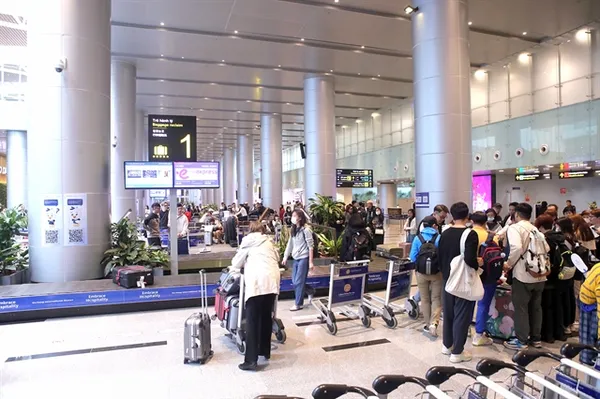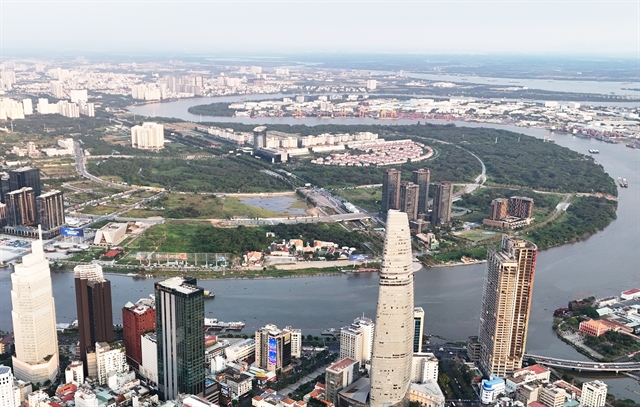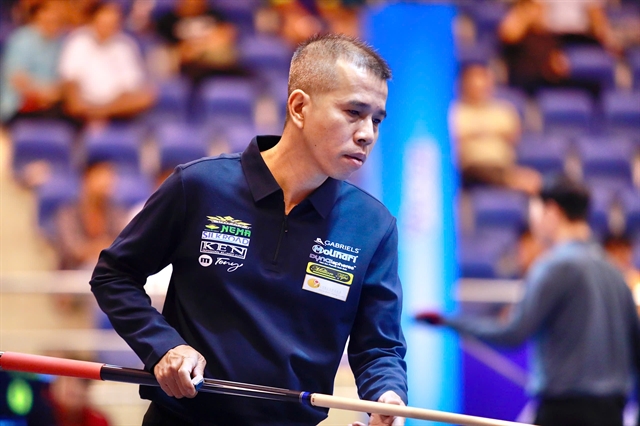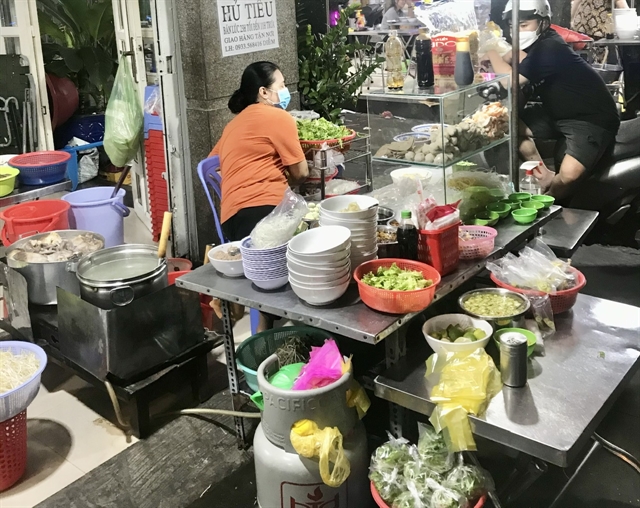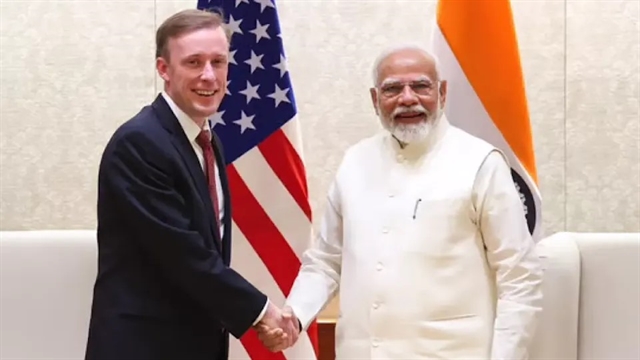 World
World
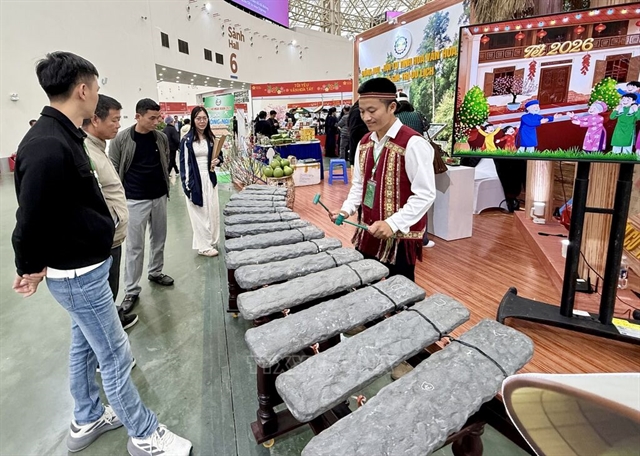
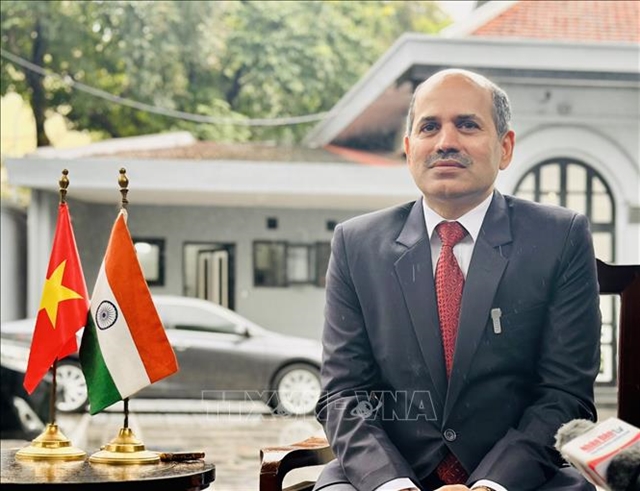 |
| Indian Ambassador to Việt Nam Sandeep Arya. — VNA/VNS Photo |
Việt Nam and India have long maintained strong and sustainable relations, built on a shared historical foundation, cultural exchanges, and common strategic interests.
In a recent interview granted to the Việt Nam News Agency on the occasion of the New Year 2025, Indian Ambassador to Việt Nam Sandeep Arya shared insights about the future of the Việt Nam-India Comprehensive Strategic Partnership, as well as potential areas of cooperation that will help further deepen the bilateral relations.
On the occasion of the State visit by Vietnamese Prime Minister Phạm Minh Chính to India in August 2024, the two sides issued a Joint Statement on Strengthening the Comprehensive Strategic Partnership. Please share your opinions on the breakthroughs needed to elevate the bilateral relations to new heights. What new and potential areas can the two sides explore to deepen their multifaceted cooperation?
The State visit by Prime Minister of Việt Nam H.E. Phạm Minh Chính to India four months back enabled a detailed review of India-Việt Nam comprehensive strategic partnership by the two Prime Ministers and an understanding to intensify and strengthen bilateral cooperation in several areas as encapsulated in the Joint Statement following the visit on 1 August 2024.
The signing of bilateral agreements in August 2024 in the fields of agriculture, traditional medicine, customs, defence, media, law, credit lines for bilateral projects, heritage conservation will pave the way for expanding India-Việt Nam cooperation in all these areas.
As two rapidly growing economies, India-Việt Nam trade, investment and business collaboration are natural areas for reinforcing economic cooperation. Both countries seek to streamline trade regimes and technical issues for enhancing bilateral trade from the current volume of US$15 billion. The ongoing review of the ASEAN-India Trade in Goods Agreement of 2009 should make our trade regimes more simple, user-friendly & trade-facilitative. Sectoral discussions in areas such as agriculture, healthcare and digital technology are making progress. Our ongoing efforts to increase two-way visits of business delegations and participation in various trade expos will also facilitate greater trade between us.
Both countries have identified various sectors of interest to promote investment flow between the two countries from the current level of Indian investment in Việt Nam of over $2 billion. Numerous Indian and Vietnamese companies are progressing discussions to conclude projects in areas such as infrastructure, renewable electricity generation, manufacturing of various goods (automobile parts, pharmaceuticals, consumer goods, processed food, e-vehicles), service industries (ICT, finance, education), etc. We hope that these engagements will increase business linkages between the two countries.
Digital technologies and other fields of science and innovation are also promising areas where some discussions are taking place between the two countries. Recently completed facilities with Indian support such as the Army Software Park at Telecommunications University, Nha Trang and Centre of Excellence for Software Development and Training at the Post and Telecommunications Institute of Technology, HCM City have enhanced capacity in ICT education, data centre and digital applications in Việt Nam.
We believe that other technological domains such as biotechnology, 5G/6G telecommunications, financial technology, atomic energy, defence, space applications, cyber security, etc. also hold good potential for cooperation between the two countries. Bilateral digital payments system will support business, tourism, education and other activities between us.
As our countries secure their place in international arena, we should consult and cooperate further on global and regional matters, international issues such as financing for development, access to technology, greater voice and role for Global South. Initiatives such as International Solar Alliance, Coalition for Disaster Resilience Infrastructure and Global Biofuels Alliance could also be fruitful for working together for our countries.
We also believe that ongoing healthy defence and security cooperation between India and Việt Nam need to be deepened further in light of our strategic trust, convergences, synergies and value that we represent for each other. In an increasingly complex world, these aspects should particularly assume greater salience.
I also feel that people-level bonds also deserve further efforts between the two countries such as yoga exchanges, cinema and TV series, tourism, academic (educational) and think tank interactions, particularly on developmental experiences.
Tourism cooperation has emerged as a highlight in the Việt Nam-India relationship in recent years. What factors are driving tourism partnership between the two countries? Please share the solutions and approaches that Việt Nam can adopt to attract more Indian tourists?
Expansion of two-way tourism between India and Việt Nam is a very encouraging trend. Vietnamese data indicates that close to five hundred thousand Indian tourists travelled to Việt Nam in the year 2024. Indian figures showed growing number of Vietnamese travelers to India that stood at over 55 thousand in 2023.
Apart from the deep interest and affinity between the people of India and Việt Nam, the tourism growth is driven by increasing direct flight connectivity which stands at about 56 flights per week. Our civil aviation authorities have recently agreed to further increase the number of direct flights between us. Secondly, e-visa facility in both directions has been a good enabler for travel between India and Việt Nam. Thirdly, tourism promotion efforts in both countries and the support provided by travel agencies have helped expand the travel. Fourthly, as travel is growing, tourist services and expectations in terms of facilities, food and other needs are getting streamlined gradually. Fifthly, new destinations and modalities such as weddings, meetings & conferences (MICE), pilgrimage & leisure are also contributing to greater travel.
I believe that all these efforts should continue to drive the growth of tourism between India and Việt Nam.
As one of the countries most severely affected by climate change, Việt Nam has been making great efforts to pursue sustainable green development. Meanwhile, India stands 4th globally in Renewable Energy Installed Capacity, 4th in wind power capacity & 5th in solar power capacity. As a country with many strengths in this field, what practices and experiences can India share with Việt Nam to attract more investment in renewable energy and improving energy efficiency? How do you assess the prospects for energy cooperation between the two countries?
Hydrocarbons and hydropower have been longstanding areas of cooperation between India and Việt Nam. I agree that renewable energy such as solar and wind power as well as biofuels could be areas to increase energy cooperation between us. You are right that 180,000 MW installed renewable energy capacity in India represent valuable capabilities and understanding of their implementations.
At the level of the two governments, sharing of experiences and practices in terms of policies and their implementation could be mutually beneficial. Việt Nam’s joining of India-based International Solar Alliance will open up opportunities for exchanges on technology, financing tools, capacity building and broader issues in the field of solar power.
Indian companies are interested and engaged in pursuing opportunities in Việt Nam in renewable power (electricity) development. We hope that some of these ongoing discussions will result in projects in the near future.
Biofuels is another relevant area where ethanol-mixed fuel is playing an important role in reducing hydrocarbon consumption for transport in India. India is gradually increasing the present level of 15 per cent ethanol blending in petrol to 20 per cent in the next year or so. Global Biofuels Alliance in India is enabling cooperation and knowledge sharing among countries and we hope that it will become a platform for greater cooperation with Việt Nam.
Việt Nam’s decision to pursue nuclear power generation will also open opportunities for our cooperation taking into account large indigenous capabilities in India with over 8200 MW installed capacity and our success in 700 MW pressurized heavy water reactors and related expertise in India.
What is your assessment of Việt Nam's efforts and actions in light of strategic directions recently initiated and promoted by Vietnamese Party General Secretary Tô Lâm to usher Việt Nam into a new era - the era of the nation's rise?
It is impressive to see Việt Nam’s vision and well-thought out efforts for the nation’s rise in terms of development, prosperity and public investment using innovation, skill-building, digital transformation and emerging technologies. A stronger and more prosperous Việt Nam in line with the vision of its wise and dynamic leadership will be a positive development for us a steady partner of Việt Nam for over seven decades. VNS

